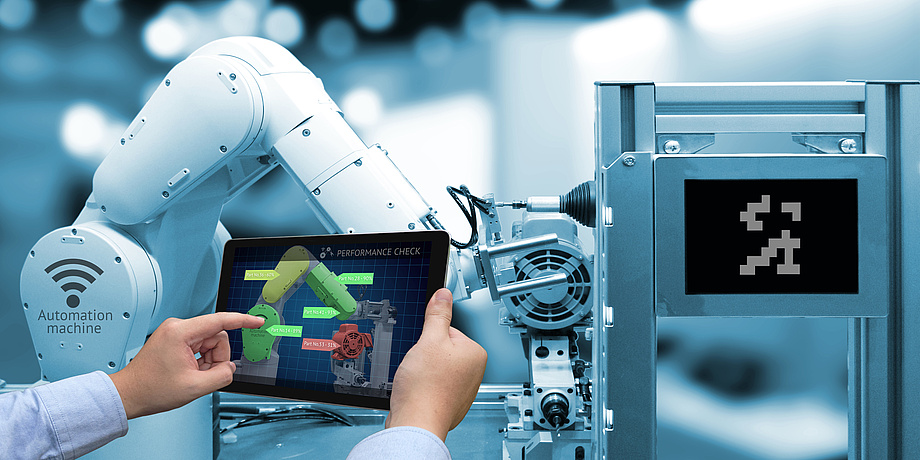In the course of continuing digitalisation and technological change, artificial intelligence (AI) and robotics are as essential for the development of new, innovative products as they are for the future careers of young people. However, these topics have hardly been taken into account in the syllabuses. The result of this is that there are too few qualified specialists for tomorrow’s job market. This is something that the Institute of Software Technology at TU Graz together with partner institutions in Austria and Hungary wants to rectify.
Skills development in robotics and AI
Together with colleagues from Széchenyi István University, Graz experts have developed the EDLRIS training (European Driving License for Robots and Intelligent Systems) and further education programme to familiarise young people with the topics of AI and robotics at an early stage. In the initial phase, the project team is focusing on the training and certification of teachers according to the train-the-trainer concept. ‘We want to provide instructors with the required abilities so they can train young people to a high level,’ explains project leader Gerald Steinbauer from TU Graz. The instructors are the first multipliers to spread a better understanding of robotics and AI – both regarding the technology and the effects on society.
European Computer Driving License (ECDL) as a model
The EDLRIS certificate has a modular structure – just like the ECDL, through which people can prove their computer skills. Gerald Steinbauer explains: ‘We offer basic and advanced courses in the fields of robotics and AI and make available syllabuses, didactic concepts and learning and teaching material.’ Training content ranges from the principles of AI and computer sciences to mathematical elements and practical solutions to problems. ‘The advanced modules are very close to a bachelor’s degree level,’ says Steinbauer. The first courses started on 4th March at the Burgenland College of Education. Steinbauer: ‘They are the ideal project partner, especially as the University College of Virtual Teacher Education (VPH), which is an innovation hub for digital education trends, is located there.’
EDLRIS: internationally recognised and standardised training and certification system
The Austrian Computer Society (OCG) and the John von Neumann Computer Society, Hungary, will take over certification. These institutes will not only certify the instructors but subsequently also carry out the certification of the young course graduates. Companies from business and industry showed great interest in the project even during the development phase. ‘Whether you’re looking for an apprenticeship, applying for a placement or simply as a skill to add to your CV, the certificate could be a crucial criterion for companies when choosing personnel,’ says Steinbauer, who sees in this new European driving license a basis for establishing robotics and AI as a basic skill. ‘A knowledge of AI will have to become a matter of course, just like reading and writing.’
To register for the 2019 EDLRIS courses and for more information, go to http://www.virtuelle-ph.at/edlris
For detailed questions about the courses, please contact edlris@ist.tugraz.at
EDLRIS Learning Management System: EDLRIS Learning Management System.
This research topic is anchored in the Field of Expertise ‘Information, Communication & Computing‘, one of the five strategic research FoE of TU Graz.

